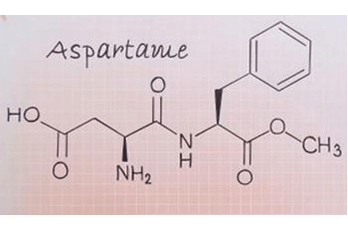AWARENESS OF PHARMACISTS TOWARDS ASPARTAME SIDE EFFECTS IN KHARTOUM CITY, SUDAN
Keywords:
Aspartame, Awareness, Pharmacists, SudanAbstract
Objective: Aspartame (or APM) is the name for an artificial, non-saccharide sweetener used as a sugar substitute in many foods and beverages. Aspartame is the methyl ester of a phenylalanine/aspartic acid dipeptide. Aspartame is an artificial sweetener. It is 200 times sweeter than sugar in typical concentrations, without the high-energy value of sugar. Aim of current study was to study the awareness of pharmacists about aspartame side effects.
Materials and methods: This study was carried in greater Khartoum, questionnaire for pharmacists to see the consumption and the awareness of them to these interactions during the period from September 2014 to November 2014.Study was conducted among practicing pharmacists. A pre designed and tested questionnaire were used for each category to collect the data. From the hospitals manager.
Results: 32% were aware of the number of aspartame products. Pharmacists when asked how many patients purchase aspartame products per day, answers showed that 74.5% ranged between 1-10 patients per day, About pharmacist’s expectations to develop side effects due to aspartame, use regularly showed that 75% agreed that it would. pharmacists claimed that aspartame can or worsen a certain list of some diseases in which that diabetes represented 30%, Alzheimer’s 28% , attention deficit disorder 17.3% , psychological disorders.
Conclusion: The majority of community pharmacists expect side effects can be developed due to aspartame regular use by patients but majority didn’t know what are the exact side effects and the exact diseases that can be worsened when using aspartame.

Peer Review History:
Received 5 April 2020; Revised 12 May; Accepted 27 June; Available online 15 July 2020
Academic Editor: Essam Mohamed Eissa , Beni-Suef University, Egypt, dressamceutics@yahoo.com
, Beni-Suef University, Egypt, dressamceutics@yahoo.com
Reviewer(s) detail:
Prof. Dr. Hassan A.H. Al-Shamahy , Sana'a University, Yemen, shmahe@yemen.net.ye
, Sana'a University, Yemen, shmahe@yemen.net.ye
Dr. Nada Farrag , Misr International University Egypt, Nada_Hazem87@hotmail.com
, Misr International University Egypt, Nada_Hazem87@hotmail.com
Downloads

Published
How to Cite
Issue
Section

This work is licensed under a Creative Commons Attribution-NonCommercial 4.0 International License.









 .
.